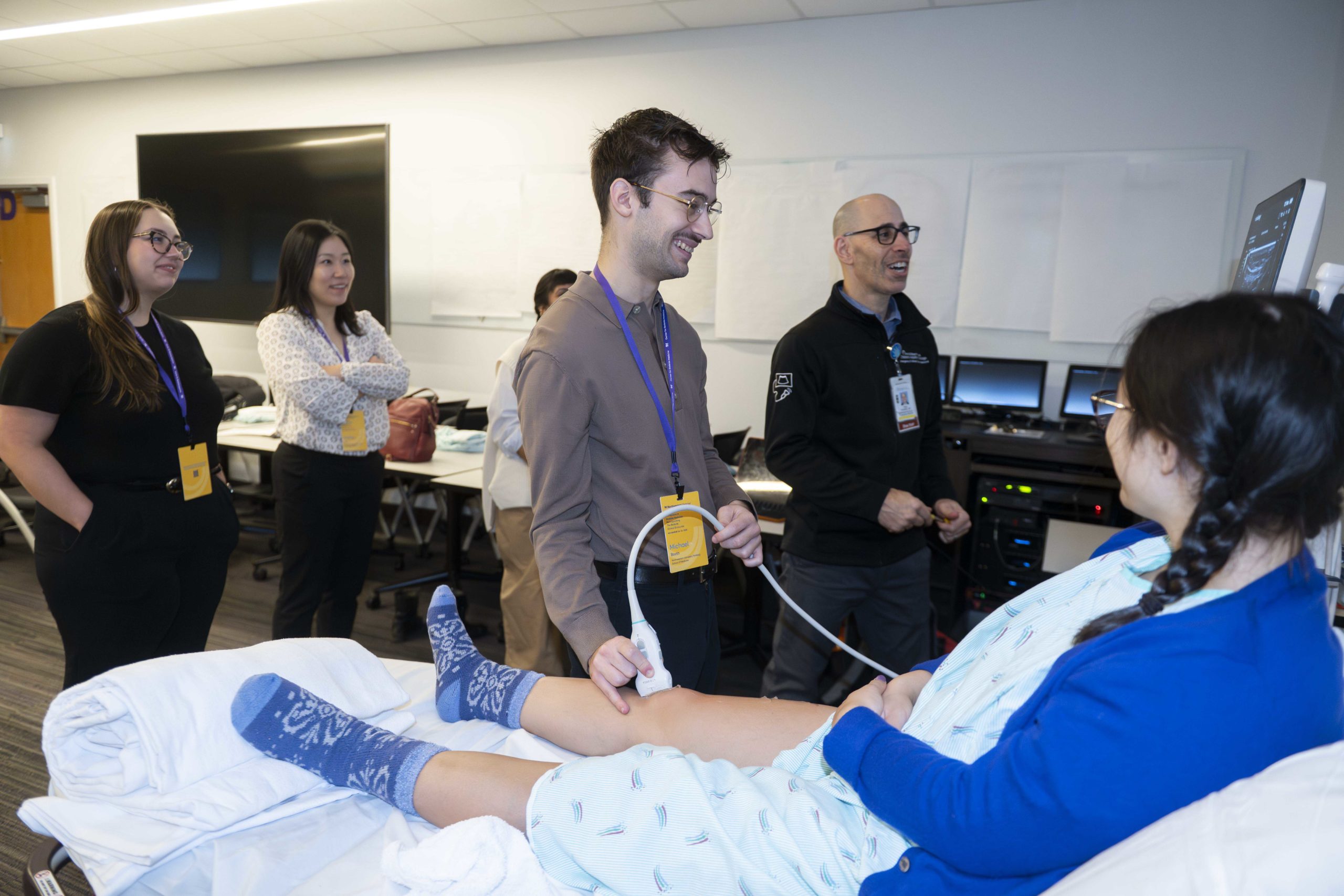-

Older Adults in Illinois at Increased Risk for Suicide
Nearly 20 percent of suicides in Illinois between 2020 and 2021 were among people 65 years and older, according to recently released data.
-

Understanding Structural Drivers of HIV and Substance Use
The NIH recently funded the five-year SILOS Project, led by principal investigator Michelle Birkett, PhD, which will conduct innovative observational research across five cities across the United States to better understand the social contexts that drive HIV and substance use.
-

Hauser Named 2024 Tripartite Prize Awardee
Alan Hauser, MD, PhD, professor and vice chair of Microbiology-Immunology, has been named the winner of the 2024 Tripartite Legacy Faculty Prize in Translational Science and Education.
-

New Biomaterial Regrows Damaged Cartilage in Joints
A new bioactive material developed by Northwestern scientists may be able to regenerate high-quality cartilage in knee joints, according to a new study.
-

Investigating the Molecular Mechanisms of ‘Forgetting’
Northwestern Medicine investigators have uncovered a new way in which neurons in the brain “forget” associations that help guide behavior and habits, according to a study published in Cell Reports.
-

Intercellular Mechanisms Regulate Gene Expression in Cancer Cells
Scientists have discovered how interactions between RNA and the TOP1 essential enzyme, which is overexpressed in many human cancers, regulate DNA during transcription and may inform the creation of new cancer therapies, according to a Northwestern Medicine study published in Molecular Cell.
-

Advancing Pain Medicine Through Innovative Treatments and Precision Care
Get to know Steven P. Cohen, MD, who recently joined Northwestern University Feinberg School of Medicine as the inaugural Edmond I. Eger Professor of Anesthesiology and vice chair of Research and Pain Medicine.
-

Investigators Discover New Therapeutic Target for Pediatric Brain Cancers
Northwestern Medicine investigators have discovered that targeting the TIM3 protein in mouse models of low-grade astrocytoma increased survival compared to current immunotherapies, according to recent findings published in the Journal of Clinical Investigation.
-

Intense Exercise Doesn’t Increase Risk of Sudden Death in Genetic Heart Disorder
High-intensity exercise does not increase the risk of sudden cardiac death in individuals with congenital long-QT syndrome, a genetic heart disorder, according to findings from a recent study published in Circulation.
-

Study Identifies Racial Differences in Rare Endometrial Cancer
Northwestern Medicine investigators have discovered that uterine serous carcinoma tumors in Black patients express more aggressive and immunosuppressive features than tumors in white patients, according to a recent study published in the Proceedings of the National Academy of Sciences.
-

Understanding Epigenetic Control of Antibody Responses
Northwestern Medicine investigators have uncovered how antibody responses are regulated by epigenetic factors commonly mutated in cancers, according to a study published in Nature Immunology.
-

‘Hidden’ Irregular Heartbeats May Raise Risk of Death
Irregular heartbeats can raise a person’s risk of death even when they go unnoticed by traditional heart monitoring, according to a Northwestern Medicine study published in Circulation.
-

Nominations Open for 2025 Kimberly Prize
Northwestern University is accepting nominations for its $250,000 Kimberly Prize in Biochemistry and Molecular Genetics. The annual prize will be awarded in 2025.
-

Analyzing the Effects of Dietary Acculturation on Heart Health
Dietary acculturation may increase the risk of heart disease for people of Hispanic or Latino heritage in the U.S., according to a study published in Circulation.
-

‘Feedback Loop’ Promotes Cancer Cells’ Adaption to Molecular Stress
Investigators from the laboratory of Marc Mendillo, PhD, have discovered new cellular regulators of an established cancer cell transcription factor linked to cancer cell resilience and tumor progression, according to findings published in the Proceedings of the National Academy of Sciences.
-

Novel AI Model May Enhance Health Data Interoperability
An AI model developed by Northwestern Medicine investigators improved the transformation of EHR data into standardized health resources more efficiently than current methods, according to a recent study published in journal NEJM AI.
-

Building Strong Student Communities at Feinberg
Catch up with Eli Zimmerman, MD, the new associate dean for student affairs, who has settled into his role since joining Feinberg at the start of this year.
-

First-Year Medical Students Celebrate New Academic Year at Founders’ Day
First-year medical students donned their white coats for the first time and marked the official start to the academic year at Founders’ Day on August 2 at Fourth Presbyterian Church in Chicago.
-

Summer Research Program Trains Future Clinician-Scientists
Eight Feinberg medical students recently participated in a summerlong research program designed to equip them with the skills to become successful clinician-scientists.
-

Northwestern Receives Grant to Implement Secure Firearm Storage Program for Illinois Parents
The National Institutes of Health (NIH) has awarded $3.3 million over five years to Northwestern University to study the implementation of an evidence-based secure firearm storage program.





